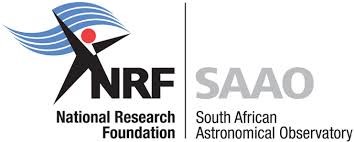SWCA ROAD
 |  |
The International Astronomical Union (IAU, www.iau.org) is the largest body of professional astronomers in the world. In frame of IAU strategic plan, the Office of Astronomy for Development (OAD) in partnership with the South African National Research Foundation (NRF) has been set up. The OAD was officially opened on 16 April 2011 at the South African Astronomical Observatory (SAAO) in Cape Town, South Africa. Kevin Govender is the OAD Director. The first major workshop of stakeholders was held on 12-14 December 2011. In addition to OAD, Regional Offices of Astronomy for Development (ROAD) will be established for coordination of astronomy development in the whole world, as well as Language Expertise Centres. Since the opening of OAD, three ROADs and one Language Expertise Centre have been established, as well as OAD is planning its activities within three Task Forces:
- Universities and Research (TF1);
- Children and Schools (TF2);
- Public Outreach (TF3).

In 2012 the first open Call for Proposals was launched for each of the task forces and in 2014, new Calls were announced. Many astronomy centres have benefited from these activities.
Since the beginning of this initiative, Armenia has been rather active in proposing projects and submitting a proposal to host a regional office in Southwest Asian area. IAU found Armenia’s proposal rather strong and justified, however only recently Armenia has been selected to coordinate IAU Astronomy for Development activities in this region. Armenia and particularly Byurakan Astrophysical Observatory (BAO) is a reliable centre for astronomy development in the Southwest Asia region, involving the South Caucasus countries (Armenia, Georgia and Azerbaijan), Iran, Turkey and Israel, where efforts are being made to develop astronomy (Arabic countries develop their own project for a similar centre). In addition, in frame of the European Eastern Partnership program, Armenia will play a role of the link between Europe and Eastern countries. Central Asian countries (former USSR republics) Kazakhstan, Uzbekistan and Tajikistan may also join.

History of Astronomy in Armenia goes back to very old ages. Since ancient times Armenians accumulated astronomical knowledge and have left this heritage in the forms of rock art, ancient observatories, calendars and chronology, records of astronomical events (Solar and Lunar eclipses, appearance of comets, Supernovae, etc.), medieval sky maps, astronomical terms in the language, etc. Nowadays Armenia is one of the developed countries in astronomical sense as well, though by its economic level Armenia is among the developing countries, and it is situated in a region (Middle East) where efforts are needed to develop and promote astronomical education and knowledge.
The famous Byurakan Astrophysical Observatory (BAO) founded in 1946 made a significant contribution in the fields of research of non-stable phenomena and evolutionary processes in the Universe. However, the development of astronomy depends not only on professional astronomers. Popular and amateur astronomy, astronomy education, preservation of astronomical heritage sites are signs of maintenance of high-level astronomy in any country.
Armenian astronomy has a number of features that justify such a selection by IAU, such as:
- Byurakan Astrophysical Observatory (BAO, http:///www,bao.am) is one of the important astronomical centres in the Middle East region,
- discoveries and achievements by the outstanding scientist, former IAU and ICSU President Prof. Viktor Ambartsumian (1908-1996, www.aras.am/FamousAstronomers/ambartsumian.html) and other famous Armenian astronomers (www.aras.am/FamousAstronomers/famousarmastr.html) are well known,
- BAO owns the largest in the region 2.6m (http://www.bao.am/2_6m.htm) and one of the largest in the world 1m Schmidt (http://www.bao.am/1m.htm) telescopes,
- many important international meetings (http://www.aras.am/BAO/meetings.html), including five IAU Symposia (1966, 1986, 1989, 1998, and 2013) and an IAU Colloquium (2001) (http://www.aras.am/Meetings/meetingsIAU.html), as well as the Joint European and National Astronomical Meeting (JENAM) in 2007 (http://www.aras.am/Jenam2007/index.htm),
- the recently established series of Byurakan International Summer Schools (BISS in 2006, 2008, 2010, and 2012, http://www.aras.am/Meetings/meetingsSummerSchools.html), where the regional students can train and get experience,
- active international collaboration with a number of countries (http://www.aras.am/BAO/collaboration.html), such as USA, UK, France, Italy, Germany, Spain, Russia, Georgia, Bulgaria, Japan, China, Mexico, Australia, and others,
- international PhD program that in 1970s-2000s has awarded scientific degrees to astronomers from Russia, Ukraine, Hungary, Bulgaria, Georgia, Azerbaijan, Uzbekistan and Jordan,
- famous Byurakan (Markarian) surveys accomplished by Beniamin Markarian (1913-1985, www.aras.am/FamousAstronomers/markarian.html) and his colleagues and one of the largest world astronomical spectroscopic databases (DFBS, http://www.aras.am/Dfbs/dfbs.html), which recently was included in the UNESCO "Memory of the World" international register,
- Armenian Virtual Observatory (ArVO, http://www.aras.am/Arvo/arvo.htm), which is one of the 20 (18 national and 2 European) members of the IVOA (http://www.ivoa.net) and which is the only such project in the Middle East region,
- very active Armenian Astronomical Society (ArAS, http://www.aras.am/), an affiliated member of the European Astronomical Society (EAS), having 100 members, including those from 21 countries (Armenia, USA, France, Mexico, Germany, Russia, Spain, etc.), Annual Meetings, Electronic Newsletters, Annual Prizes for Young Astronomers,
- one of the major international prizes in astronomy (USD 500,000), recently established Viktor Ambartsumian International Prize (http://vaprize.sci.am/) with an International Steering Committee, including three IAU Presidents (Prof. Catherine Cesarsky, Prof. Robert Williams, and Prof. Norio Kaifu),
- Galileo Teachers Training Program (GTTP, http://www.aras.am/Iya2009/GTTP.htm) and very successful participation of the Armenian pupils in the International Astronomical Olympiads (http://www.aras.am/Education/IAOs.html).
Armenia has a unique geographical location that gives it possibility to serve as a link between East and West; it is considered both as a European and as an Asian country, it is part of Middle East and (South) Caucasus (Armenia, Azerbaijan, and Georgia), it is one of the former Soviet Union republics and has tight relations to other such countries, including South Caucasus, Russia, Ukraine, Belarus, Moldova, Baltic (Estonia, Latvia, and Lithuania) and Central Asian states (Kazakhstan, Kyrgyzstan, Tajikistan, Turkmenistan, and Uzbekistan). At last, Armenia is regarded by many European countries as a link for astronomical contacts between Europe and East; especially having tight relations to Eastern European countries like Bulgaria, Czech Republic, Greece, Hungary, Poland, Romania, Serbia and others.

Further plans are to establish a permanently operational Office in Byurakan with dedicated staff, create a regional Steering Committee, define the list of countries that will develop activities in frame of our ROAD, develop business plan for forthcoming years and start activities in frame of ROAD, including strengthening of contacts between the regional countries, establishing scientific collaborations, joint research and observing programs, exchange of scientists, training of young researchers and students, organization of meetings and schools, invitation of outstanding scientists to give lectures in the region, regional Olympiads, science camps, publication of scientific, popular and promotional books, booklets and other materials, and organization of all activities through the dedicated ROAD webpage.